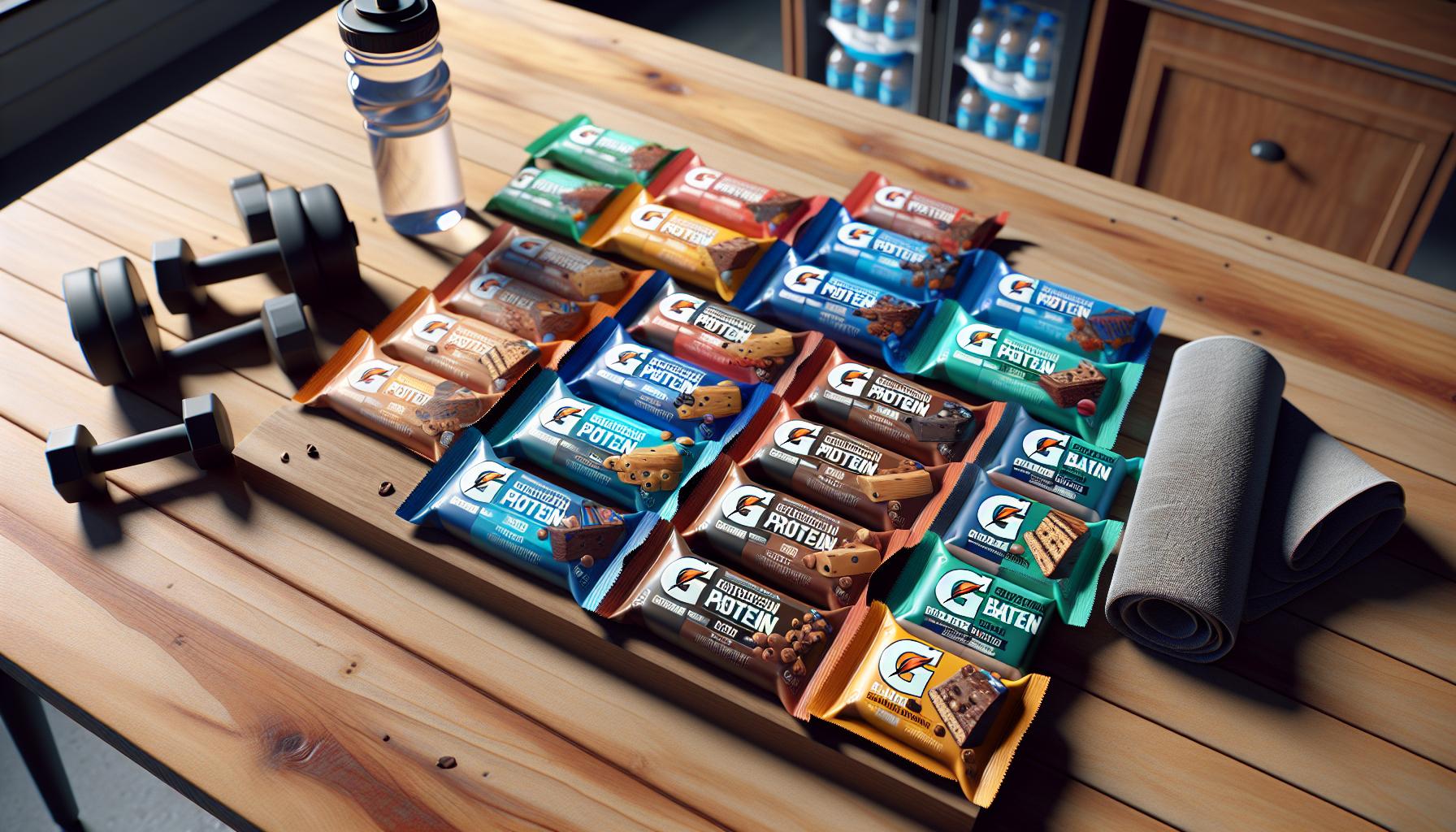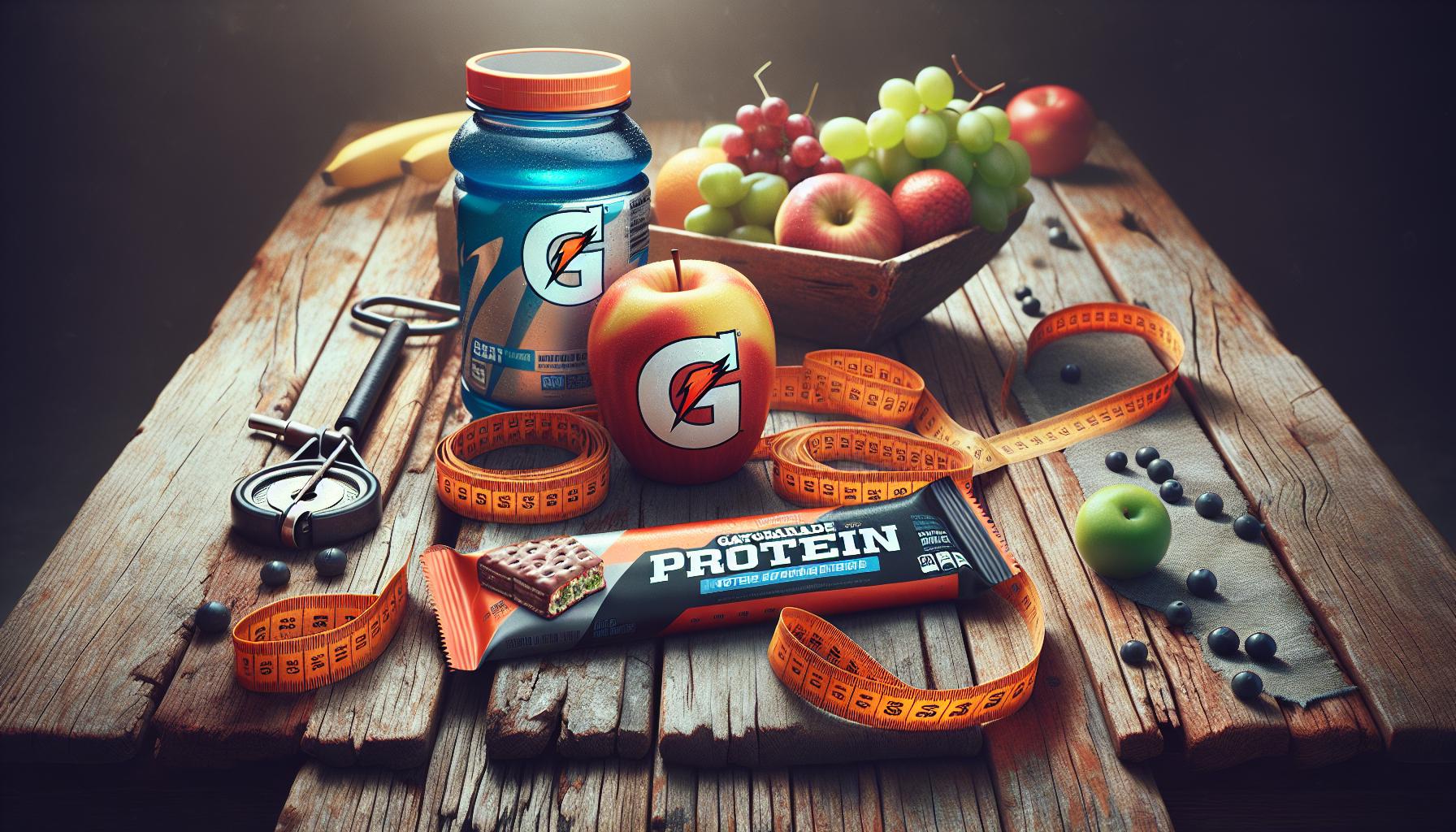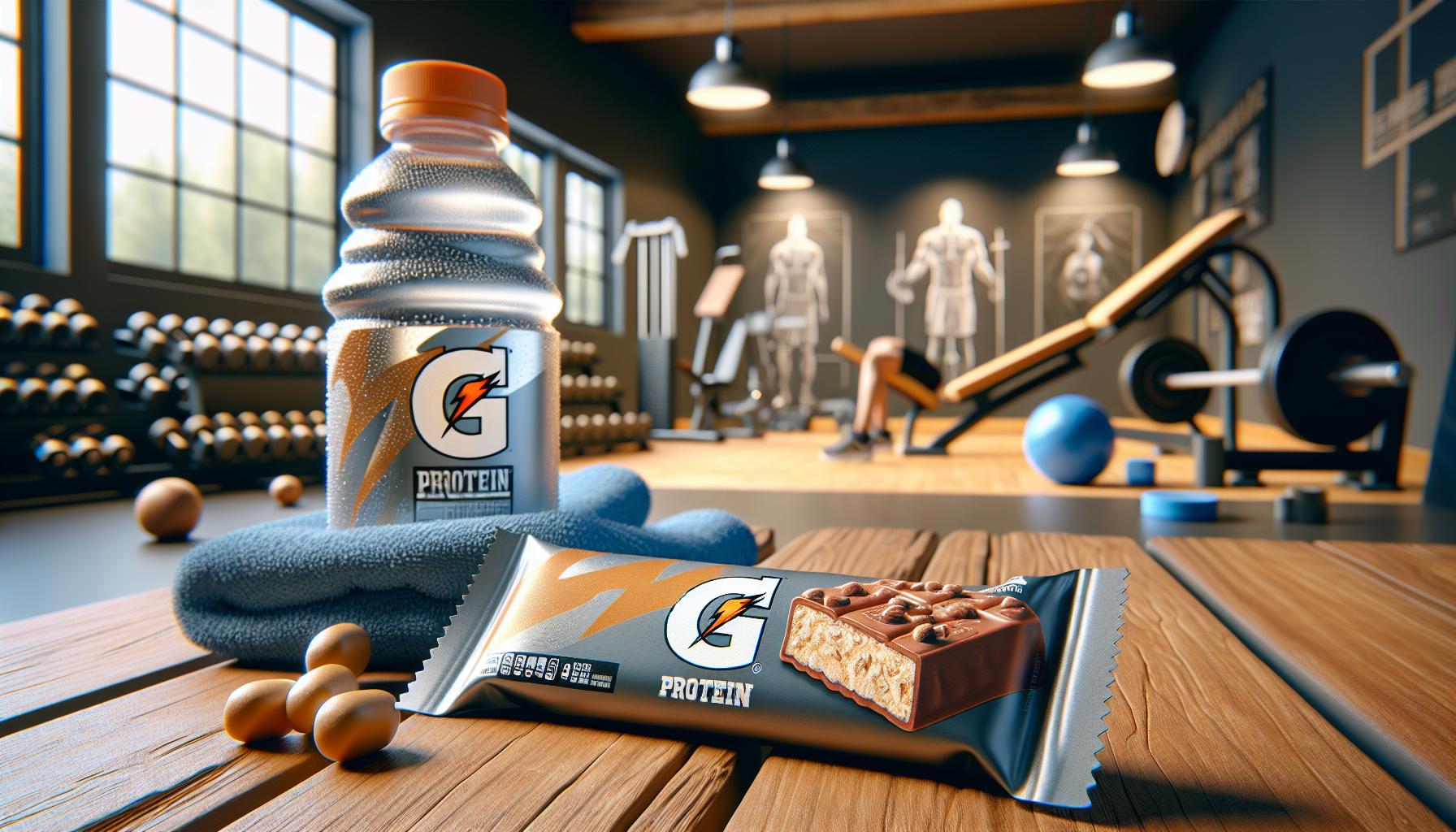Phone:
(701)814-6992
Physical address:
6296 Donnelly Plaza
Ratkeville, Bahamas.

When athletes need a quick protein boost they often reach for Gatorade protein bars – those colorful wrapped promises of enhanced performance and recovery. But what’s really hiding behind that familiar lightning bolt logo?
The nutrition label on Gatorade protein bars tells an interesting story about what fuels your workout. While these convenient snacks pack a protein punch between 10-20 grams per bar depending on the variety they’re also loaded with other ingredients that impact your training goals. From carbohydrates and sugars to vitamins and minerals the nutritional breakdown matters for anyone serious about their fitness journey.
Gatorade Protein Bars offer athletes a convenient protein source manufactured by PepsiCo under the Gatorade brand. These bars feature a blend of milk protein isolate whey protein concentrate to support muscle recovery after intense physical activity.
Each Gatorade Protein Bar contains:
The bars come in several flavors:
| Nutrient | Amount per Bar |
|---|---|
| Protein | 20g |
| Carbohydrates | 42g |
| Fat | 5g |
| Calories | 290 |
| Fiber | 3g |
Athletes consume these bars in specific situations:
The bars incorporate a specialized protein matrix designed for optimal amino acid delivery. This formulation aligns with Gatorade’s focus on sports nutrition science developed through research at the Gatorade Sports Science Institute.

Gatorade protein bars display detailed nutrition information on their labels, providing athletes with essential data about their nutritional intake. The label follows FDA guidelines for food labeling, making it easy to track daily nutrient consumption.
Each Gatorade protein bar contains 290 calories per serving. The macronutrient breakdown includes 20 grams of protein from milk protein isolate and whey protein concentrate. The bars deliver 42 grams of carbohydrates, with 17 grams coming from added sugars to support energy needs. The fat content remains low at 5 grams per bar, including 3 grams of saturated fat. A notable 3 grams of dietary fiber aids in digestion and promotes satiety.
| Macronutrient | Amount per Bar |
|---|---|
| Calories | 290 |
| Protein | 20g |
| Carbohydrates | 42g |
| Added Sugars | 17g |
| Total Fat | 5g |
| Fiber | 3g |
The vitamin profile includes 25% Daily Value (DV) of vitamin B6 and 50% DV of vitamin B12, supporting energy metabolism. Essential minerals comprise 20% DV of calcium for bone health and muscle function. The bars contain 15% DV of magnesium, aiding in muscle recovery and electrolyte balance. Iron content measures 10% DV, contributing to oxygen transport during exercise.
| Nutrient | Daily Value % |
|---|---|
| Vitamin B6 | 25% |
| Vitamin B12 | 50% |
| Calcium | 20% |
| Magnesium | 15% |
| Iron | 10% |

Gatorade protein bars contain specialized ingredients formulated for athletic performance. Each component serves a specific purpose in supporting energy levels, muscle recovery, and overall nutritional needs.
The protein matrix in Gatorade bars combines milk protein isolate and whey protein concentrate, delivering 20 grams of complete protein per serving. Milk protein isolate provides casein protein, which releases amino acids slowly into the bloodstream. Whey protein concentrate offers rapid amino acid absorption, making it effective for immediate muscle recovery. This dual-protein approach creates a sustained release of essential amino acids, including:
The carbohydrate blend in Gatorade protein bars consists of 42 grams total carbohydrates per serving. The breakdown includes:
These carbohydrate sources provide both immediate and sustained energy release. The combination of fast-acting sugars and complex carbohydrates maintains blood glucose levels during athletic activities. Dietary fiber aids digestion and helps regulate sugar absorption.

Gatorade protein bars offer specific nutritional advantages that support athletic performance. These bars combine essential macronutrients with targeted vitamins and minerals to enhance workout results.
Consuming Gatorade protein bars 30-60 minutes before exercise provides sustained energy through its 42g carbohydrate blend. The combination of fast-acting sugars and complex carbohydrates maintains blood glucose levels throughout training sessions. Athletes metabolize the 20g protein matrix during exercise, which includes 2.5g of leucine to stimulate muscle protein synthesis. The 290-calorie bars contain B vitamins that support energy metabolism, enabling optimal performance during high-intensity activities.
The dual-protein blend in Gatorade bars accelerates muscle recovery after exercise through strategic amino acid delivery. An optimal 3:1 carbohydrate-to-protein ratio replenishes glycogen stores while initiating tissue repair. The 20% daily value of calcium supports muscle contractions, as 15% magnesium content aids in reducing exercise-induced inflammation. Essential amino acids, including 1.2g isoleucine and 1.3g valine, repair damaged muscle fibers. The 4.1g glutamine content enhances immune function during the recovery phase, while 3g of fiber promotes digestive health.
Gatorade protein bars contain distinct nutritional differences compared to other popular protein bar brands. Here’s a comparative analysis of key nutrients per serving:
| Nutrient | Gatorade | Quest | Clif Builder’s | Pure Protein |
|---|---|---|---|---|
| Calories | 290 | 200 | 270 | 200 |
| Protein (g) | 20 | 20 | 20 | 20 |
| Carbs (g) | 42 | 4 | 29 | 17 |
| Sugar (g) | 17 | <1 | 17 | 2 |
| Fiber (g) | 3 | 14 | 2 | <1 |
| Fat (g) | 5 | 8 | 8 | 6 |
Gatorade bars feature higher carbohydrate content than competitors, making them suitable for endurance athletes. The protein content matches leading brands at 20 grams per serving, utilizing a specialized dual-protein matrix.
Several key differences set Gatorade bars apart:
Athletes looking for low-carb options find alternatives in Quest bars, while those seeking maximum protein absorption benefit from Gatorade’s specialized protein blend. Pure Protein bars offer similar protein content with fewer calories, though they lack the comprehensive vitamin mineral profile of Gatorade bars.
The electrolyte content distinguishes Gatorade bars from standard protein bars, aligning with their sports nutrition focus. Their carbohydrate profile supports glycogen replenishment, whereas competitors like Quest target different dietary preferences such as keto or low-carb lifestyles.
Gatorade protein bars stand out as a well-balanced nutritional choice for athletes and fitness enthusiasts. Their carefully formulated blend of proteins carbohydrates and essential nutrients provides comprehensive support for both performance and recovery.
The bars’ specialized protein matrix combined with strategic carbohydrate content makes them particularly effective for muscle recovery and energy maintenance. With transparent nutritional labeling and science-backed formulation these bars continue to be a trusted choice in the sports nutrition market.
Anyone looking to enhance their athletic performance while maintaining proper nutrition will find Gatorade protein bars to be a reliable and convenient option that delivers on both taste and nutritional value.